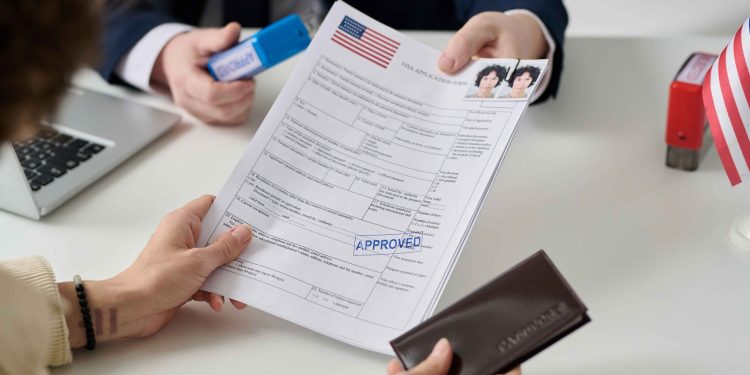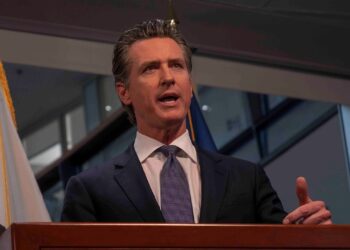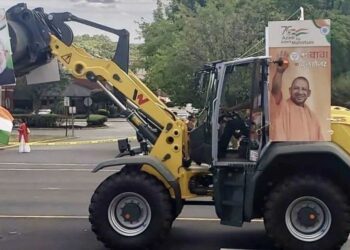In a recent development, the announcement made by the US Ambassador to India, Eric Garcetti, last month has brought relief to numerous Indian professionals residing in the United States. The announcement revealed plans to initiate a pilot program facilitating the renewal of domestic visas for qualified H&L-category employment visa applicants.
Presently, Indians holding H-1B and L visas encounter a challenging procedure of visa restamping, necessitating their return to India. This process leads to extended waiting periods, unpredictable results, prolonged absence from work, and separation from families in the US.
The prolonged delay in implementing the program has sparked disappointment among many. Earlier this year, the US State Department announced the launch of the pilot initiative “later this year,” offering visa renewal options within the US for H-1B and L-1 workers.
Subsequently, during Prime Minister Narendra Modi’s state visit to the US in June, the White House released a statement affirming that the stamping of work permit visas, including H-1B visa renewals, would be allowed in the US. While the move has been welcomed by thousands of Indians, the uncertainty regarding the timeline has caused significant concern and apprehension.
“The announcement of the pilot program to streamline H-1B visa processing in the US earlier this year was met with great anticipation and hope within the immigration community. It is both encouraging and disappointing to note the developments surrounding this program,” said Emily Neumann, an attorney at the Houston-based business immigration law firm Reddy & Neumann, in an interview with the Times of India.
She added that while there is disappointment about the delays, it is encouraging that the US Department of State remains committed to making this pilot program a reality. Neumann emphasised the significant potential benefits the program holds for both visa applicants and immigration authorities. Streamlining the H-1B visa process could reduce processing times, enhance efficiency, and facilitate smoother travel for visa holders, ultimately improving the overall immigration experience.
The news of the timeline being pushed back to the next year has disappointed many, especially considering the initial announcements had raised hopes for implementation by the end of this year. This delay is proving challenging, leading to the unavailability of both Dropbox and interview appointments.
Individuals who had eagerly anticipated reuniting with their families during the holiday season now face the daunting task of reconsidering their plans. The holiday season, traditionally a time for family togetherness, is being significantly impacted by these changes, causing visa applicants to adapt their travel and immigration plans accordingly.
Emily Neumann expressed her hopes for the eventual fruition of the pilot program, emphasising the importance of staying informed and seeking guidance during this period of uncertainty.
Despite these setbacks, some legal experts remain optimistic about the early implementation of the stateside stamping of H-1B visas. According to Manjunath Gokare, founder and managing partner of Gokare Law Firm, based in Alpharetta, Georgia, the American Immigration Lawyers Association has indicated that the stateside visa revalidation program is on track to be rolled out by the end of 2023.
Initially, the program will be available for H-1Bs only, excluding H-4s. While the state department had initially indicated the inclusion of L-1s in the pilot program, this will not be the case. The program is not limited to any specific nationality, encompassing all, including Indians. Importantly, no interviews will be required, making anyone needing an interview for any reason ineligible. However, the pilot program is anticipated to be limited in scope, with demand likely to exceed its capacity to serve.
Amidst the challenges faced by thousands of Indians in the US, there is a glimmer of hope on the horizon. According to Manjunath Gokare, founder and managing partner of Gokare Law Firm, there’s optimistic anticipation for the expansion of the stateside visa revalidation program in 2024. The expansion aims to include H-4 dependents and L-1 visa holders, along with their L-2 dependents. When this extension occurs, it will significantly benefit numerous Indians on H-1B and L-1 visas, as well as their dependents, eliminating the need for the laborious visa stamping process in India.
For many Indians in the US dealing with substantial backlogs for permanent residence or green cards, the allowance to obtain H-1B visa renewals before their travels to India is a significant relief. This provision alleviates concerns about potential delays caused by administrative processing at embassies and consulates. Typically, H-1B visas are granted for six years, after which extensions must be applied for.
Similarly, L-1 visa extensions must also be applied for and are usually granted in two-year increments. Currently, H-1 and L-1 visa holders travelling to India are required to have their passports stamped at the US Embassy in Delhi or consulates in Chennai, Hyderabad, Kolkata, or Mumbai before returning to the US.
Dr Raj Karnatak, an Indian physician in the US, highlights the inhumane consequences of the green card backlog. Highly skilled immigrants on temporary work permits find themselves unable to travel for family emergencies, funerals, or other critical family matters due to the unavailability of appointments for H-1B visa stamping.
While Prime Minister Modi praised the initiative to facilitate domestic visa stamping for specific categories in the US, the delayed rollout of stateside visa stamping for high-skilled immigrants has left many in uncertainty about its future realisation.










